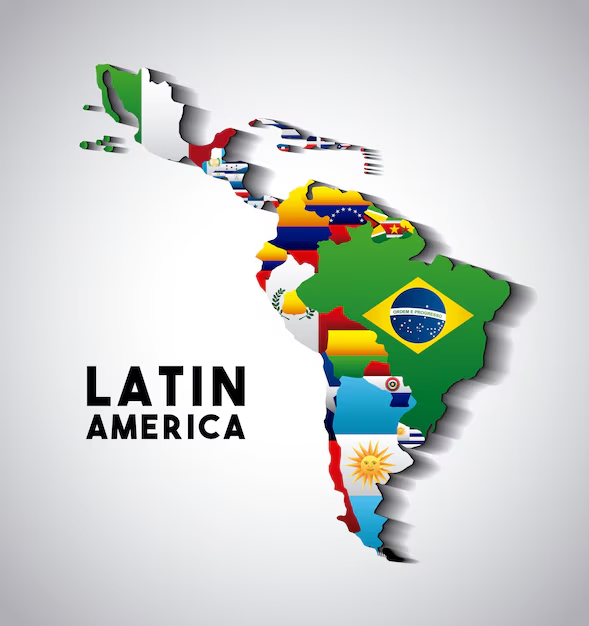Title: Social Integration of Migrants and Refugees: South American Inclusion Efforts
Introduction: In today's interconnected world, the issue of social integration of migrants and refugees has become a pressing challenge. South America, with its rich diversity and history of migration, has been at the forefront of efforts to foster inclusion and unity. In this article, we will delve into the contemporary issues surrounding community and social development in North and South America, emphasizing the importance of social integration and promoting unity. Let's explore the steps taken by South American countries to address these challenges and how we can all contribute to this vital process.
-
Understanding the Diversity of South America: South America is known for its vibrant cultural tapestry, encompassing diverse ethnicities, languages, and traditions. Recognizing and celebrating this diversity is crucial for fostering social integration.
-
Building Inclusive Communities: Efforts to create inclusive communities involve providing opportunities for migrants and refugees to actively participate in social, cultural, and economic spheres. This can be achieved through language courses, vocational training, and access to healthcare facilities.
-
Empowering Migrants and Refugees: Recognizing the skills and potential of migrants and refugees is essential for their integration. By offering entrepreneurship programs, mentorship, and financial support, South American countries are empowering newcomers to contribute to their adopted communities.
-
Promoting Multicultural Education: Educational institutions play a pivotal role in promoting social integration. By incorporating multicultural curricula, schools can foster empathy, understanding, and respect among students of diverse backgrounds.
-
Accelerating Economic Integration: Sustainable economic integration is vital for social development. South American governments have implemented policies that facilitate the inclusion of migrants and refugees in the workforce, recognizing their valuable contributions to the economy.
-
Strengthening Social Networks: Building strong social networks is essential for migrants and refugees to feel connected and supported. South American countries have established community centers, support groups, and cultural associations to facilitate networking and social integration.
-
Encouraging Intercultural Dialogue: Open and respectful dialogue between migrants, refugees, and local communities is crucial for overcoming stereotypes and prejudices. South American nations organize events, festivals, and workshops that promote intercultural understanding and dialogue.
-
Addressing Mental Health and Trauma: Migrants and refugees often face significant psychological challenges due to their migration journeys. South American countries have implemented mental health programs that provide counseling and support to those in need.
-
Enhancing Legal Protection: Ensuring legal protection for migrants and refugees is essential for their safety and well-being. South American governments have strengthened legislation to protect the rights of newcomers, making the region more attractive for those seeking refuge.
-
Advocating for Policy Change: Civil society organizations and human rights activists play a crucial role in advocating for policy changes that prioritize the social integration of migrants and refugees. By raising awareness and mobilizing public support, these groups drive positive change.
-
Promoting Social Cohesion: South American nations are actively promoting social cohesion by organizing cultural events, sports competitions, and volunteer initiatives that bring together migrants, refugees, and local communities.
-
Collaborating with International Organizations: South American countries collaborate with international organizations such as the United Nations and the International Organization for Migration to share best practices, exchange knowledge, and advocate for global solutions to migration challenges.
-
Harnessing Digital Platforms: Digital platforms have become powerful tools for social integration. South American governments utilize these platforms to provide information, resources, and support to migrants and refugees, helping them navigate their new lives.
-
Fostering Intercontinental Cooperation: North and South America can join forces to create a united front in addressing the social integration of migrants and refugees. Sharing experiences, best practices, and resources can amplify the impact of inclusion efforts.
-
Taking Action: As individuals, we have the power to make a difference. By educating ourselves about the challenges faced by migrants and refugees, engaging in dialogue, and supporting local initiatives, we can contribute to building inclusive societies in North and South America.
Conclusion: The social integration of migrants and refugees is a multifaceted challenge that requires collective efforts. South American countries have made significant strides in creating inclusive communities, but there is still much work to be done. By developing our skills and knowledge about contemporary issues in community and social development, we can actively contribute to promoting unity and fostering the inclusion of migrants and refugees. Let us work together to create a more inclusive and compassionate North and South America.
Follow-up Questions:
- What steps can you take in your local community to support the social integration of migrants and refugees?
- Are there any specific social integration programs or initiatives in your area that you find inspiring?
- How can schools and educational institutions play a more active role in promoting social integration?
- What role can digital platforms play in facilitating the social integration of migrants and refugees?
- How can we continue to raise awareness and advocate for the rights of migrants and refugees in North and South America?
Please share this article and help promote unity: #SocialIntegrationInAmericas #InclusionEfforts #PromotingUnity




